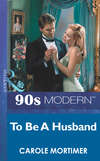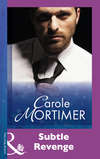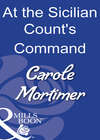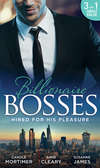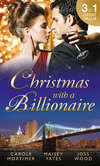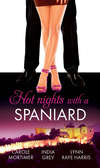Kitabı oku: «Historical Romance – The Best Of The Year», sayfa 42
And he wondered whether this time, he would be able to find a way out.
Chapter Twenty-Two
Anne had thought him an angel at first. Thought she had woken in Purgatory, where she would pay for her sins.
Yet she still lived, breathed, and lay near Nicholas again. One more memory to hold. The feel of his arms, strong around her one final time. It seemed, now, that she might not have years left to think back on it.
If Lady Joan had her way, Anne might have hours.
‘The Prince was looking for you,’ Nicholas said, the words comforting above her.
Her lady’s face changed. ‘Where is he?’
‘I’m not certain. He was near the Hall when I left him.’
She rose. ‘Take Anne to my quarters where she can be cared for. I’ll be there as soon as I can. Leave her stick here. She won’t need it.’
Nicholas waited until Lady Joan had disappeared at the top of the stairs, then he retrieved her stick.
She wondered why he was here. Ah, because the Prince had sent him to find her lady. That was her good fortune, these extra minutes. ‘May your journey be safe.’ Nonsense, but the shock of the fall and then the shock of seeing him had turned the world on edge. ‘Remember to look at the cathedrals as well as the battlefields.’
He didn’t answer, but touched her methodically, searching for parts in pain, and when he opened his mouth, what came out was not what she expected. ‘Can you move at all?’
She would be black and blue for weeks, but God had been merciful. Nothing seemed to be broken. She nodded and he helped her sit upright.
‘Are you dizzy?’
She shook her head, grateful that she could.
‘How do you feel?’
Free. I feel free. ‘Lady Joan...’ she could not tell him she was in danger. That would put him in danger, too ‘...worries overmuch.’
Could she manage to escape Windsor before Lady Joan found her? She would not be so lucky the next time.
‘No more lies, Anne. She pushed you. I saw her.’
She met his eyes. No, there was no reason to lie. He knew all the truths. ‘In all these years, she had never said anything. Never admitted anything. It was as if we both knew, but we never said a word. I wanted her to admit the truth.’
‘What did she say?’
‘That my mother had lied to me, not to the Pope. I wonder what she will say when the Prince confronts her.’
‘I did not tell him.’
She stared at him. ‘What?’
‘Oh, I tried. But he did not want to know. Or did not want to admit that he already knew. Your lady’s secret is safe.’
She smiled and shook her head. All the years. All this time.
Nicholas was not smiling. ‘You, however, are not. If you feel well enough to move, I’m taking you away from here before she kills you.’
* * *
Nicholas had no time to explain, no time to do anything beyond act to keep her safe. Fortunately, Anne did not argue. The habits of his life, planning, finding alternate routes, continuing to move, all those worked to get them out of Windsor and on the road.
He left a message saying Anne had decided to return to the convent and pray for the remainder of her life. He only hoped Lady Joan would believe it. Or if she chose to search, that she would send the men north instead of east. He smuggled her out in a cart, which not only made it easier to hide her, but also allowed her to sleep for long stretches of the journey. She might not have broken anything, but, bruised and shaken, she needed time to heal.
Anne had asked few questions, made no complaints, and Nicholas hadn’t wasted breath to discuss the future until they were days and miles away. By then, she could sit up in the cart and move without wincing and on the fifth day, when they had stopped to eat by the road side, he had found himself staring at her. Something had transformed her. No, her leg had not healed, but something that had dragged down her face for all those years had lifted when she walked away from Joan. Homeless and without protection, she looked radiant.
After they ate, she pulled out her pilgrim’s badge, the one he had given her, and ran her fingers over the outline of Saint Thomas’ horse. ‘How far are we from Canterbury?’ she said.
‘Maybe five days.’
‘Will you take me there?’
This part he had not planned. ‘Do you believe the Saint will cure you?’ When it did not happen immediately, many pilgrims stayed near, in faith that the cure would come in time. Sometimes it did. Sometimes, death came instead.
‘No. But I think it is a good choice. At least for now. I believe I now have a choice.’
‘I would offer you a different choice,’ he said.
She looked puzzled. ‘What would that be? Not the convent.’
He smiled. ‘Nothing like the convent. Come with me.’
* * *
Anne’s heart beat in her ears so loudly she thought she must have misheard. She looked at him, unable to hide the sliver of hope, but she would not be the burden that would hold him back. Never.
‘With you? Across the Channel? You have not made such a mockery of me before.’
‘I do not now. I want you to come with me.’
She shook her head, wondering if the fall had clouded her hearing. ‘You want to go back to war and ride freely where it takes you.’ And how she envied him that.
‘I want you.’
Had her fall ignited his pity? ‘There is no place for a crippled woman in that life.’
‘But there is room for you.’
She looked at him, not speaking, but knowing all her love for him was in her eyes. ‘For me? To do what?’
‘I want you, I want us, to go to Compostela, to Rome, to Jerusalem if you like.’
Us. ‘There will be no miracle cure from God. Did we not learn that already?’
‘Did God not just give us a miracle?’
Her laugh escaped then, the laugh that had saved her from anger and despair so many times. The laugh that reminded her that God’s kindness could be cruel and inexplicable. And his cruelty full of mercy. She had taken a fall that could have, should have, killed or at least maimed her. And God had insisted she stay alive. ‘Not the one I expected, but, yes.’
‘Anne.’ He put his hands on her arms. ‘Look at me. Please.’
She did, then, intending to take a last picture for her memories. Of his square face with the broad brow, deep-set eyes and lips she only knew were sensual after he had kissed her. ‘I’m looking at the man who had said he was leaving England and leaving her to burn in hell.’
‘Marry me.’
Did she blink? Did her jaw drop open? Did she nearly fall, held up only by his arms? She licked her lips and swallowed, then started to argue. ‘I thought we were beyond pity.’ No hope. She mustn’t hope. ‘Is that what this is about? Do you feel sorry for the poor, helpless cripple?’
‘Helpless?’ He squeezed her upper arms and gave her a little shake. ‘You are the strongest woman—no, strongest person I’ve ever known. You put Edward’s knights to shame.’
The words stopped her speech, this time with heat in her cheeks. ‘I thank you for that, but it changes nothing. You cannot have the life you want with me.’
‘I cannot have the life I want without you.’
Hope, hope buzzed in her ear, persistent as a fly. ‘Are you sure?’
‘I love you. I don’t want a life without you. I want to take you to all the cathedrals in every city in the whole world. I want to see them, to see everything anew through your eyes. I want to sleep beside you every night and wake beside you every morning. I want to show you the things you need to show me.’
She nearly laughed, then. ‘How fanciful you sound.’
‘I will help you walk. You can help me see.’ His voice, low, his words, intense. ‘If you love me, Anne. Please. Come.’
And suddenly, it seemed as if God had indeed given her the miracle she asked for. ‘Yes. No matter what, yes.’
* * *
They reached Dover the next day. He had sent Eustace by a different way and now he was reunited with his armour and his destrier. Nicholas found a boat willing to brave a winter crossing. Staying longer in England would tempt fate and tempt Lady Joan, too. Eustace would come with them as far as the Continental port. The young man had a taste for war, not pilgrimage. He would go on to find the Great Company and earn his spurs.
‘The crossing may be difficult.’ Only madmen crossed the Channel in winter. They had braved frost on the road. The winds had picked up.
Yet Anne looked up at him, smiling, happy. ‘I’ve crossed the Channel before. A rocking ship is a good match for my unsteady legs.’
He smiled and put his arms around her, glancing behind to see that they were casting off.
‘Don’t look back,’ she said, looking steadfastly forwards toward Calais and the future.
‘It will take months, you know.’ Compostela first. A pilgrimage of penance, in case God had wanted them to tell the truth.
‘Months by your side to see the world. What else might I hope for?’
‘A child.’ He did not ask a question, but he watched her face, uncertain what she might say.
The enormity of it was reflected there, followed by a moment of peace. ‘If it comes,’ she said, ‘I will make my way. With you by my side.’
‘As my wife.’ A word that sounded wonderful to his ear.
A moment of distress passed across her face. ‘How are we to marry? We’ll be strangers to a French church. How can they read the banns? What priest would agree?’
He smiled. ‘We need none of that.’ The boat had pushed off and already the chop was starting, the stiff breeze whipping their hair and cloaks behind them. ‘We know exactly what is needed if we are to be wed.’
He reached out and took her hand. ‘I, Nicholas, take thee, Anne, to be my wedded wife.’
Her smile became a laugh. ‘I, Anne, take thee, Nicholas...’
And the gulls were their witnesses.
* * * * *
Afterword
The accepted wisdom of the clandestine marriages of Joan of Kent is that she did, indeed, marry Thomas Holland, then William Montacute (also Montague), who became the second Earl of Salisbury, and that when Holland returned, he claimed her as his wife by their previous vow. He waited five years to pursue his legal claim to her, however, ostensibly because he lacked money to take it to the courts. After several years, and a petition to the Pope, his claim was accepted and her marriage to Salisbury was put aside.
The story was, apparently, accepted at the time and few questions have been raised about it over the years, though there were whispers. The reference to Joan as the ‘Virgin of Kent,’ was taken straight from the medieval chronicles. When her son, Richard II, was deposed, he was slurred as a bastard, though that is easily explained as further justification for removing him from the throne.
But as I dug into the details, I could not reconcile the facts as I uncovered them with the story that had been spun about them.
Why would Joan allow herself to be married if she believed she was already married in God’s eyes?
How could her first husband work for her second, and fight beside him, if he were truly married to Joan? And how could Salisbury allow it if Holland had immediately stated his claim when he returned to England in the winter of 1341–42?
Bit by bit, I came to believe that there was another story, more believable, to me, at least, to explain what had happened. It is that story, and its discovery, that drive Nicholas and Anne in this book.
I am not the first modern researcher to raise doubts about Joan’s first marriage. Chris Given-Wilson and Alice Curteis in The Royal Bastards of Medieval England said much the same thing. There has been no full-scale biography written of Joan, but the scholarly articles continue to support the official story that she had two clandestine marriages.
And what about King Edward and Queen Philippa’s role in all this? Joan was in their care when young, so if the story were true, she had ‘married’ Holland right under the Queen’s nose in Flanders. They supported her marriage to Salisbury and one explanation for Holland’s long delay in petitioning to have her returned was that he needed the money to go directly to the Pope because the King would have stopped him if he had started with the English ecclesiastical courts, as would have been the protocol. This suggested, to me at least, that Edward did not believe he was in the right. Still, Holland was one of the first knights to be initiated into the Order of the Garter, so he was certainly part of the King’s trusted circle.
Imagine King Edward and Queen Philippa’s chagrin to have to deal with Joan’s irregular marriages not once, but twice, and the second time to their oldest son and future King. A few historians have suggested that the King was opposed to this marriage, but other interpretations disagree and, in the end, he did not forbid it.
And there was a real Nicholas Lovayne—or Loveign or Loveyne or Lovagne—who was sent by the crown to the Curia on matters relating to the dissolution of Joan’s marriage not once, but twice. (I have borrowed his name in homage, but few other particulars of his life.) So if King Edward had protested, he ultimately supported his son’s efforts.
The traditional tale of the Black Prince and Joan, the Fair Maid of Kent, is that theirs was a love match. It’s even been suggested that he had loved his ‘Jeanette’ as a child and there’s a charming, though probably imaginary, tale that the Prince had been sent to plead on behalf of a friend for the hand of the beautiful and wealthy widow. She declined, saying there was only one man she loved and would marry. Him.
Edward and Joan stayed happily married, apparently, for the remainder of Edward’s life. Shortly after their marriage, they went to Aquitaine to rule over what was left of Edward III’s French possessions. Prince Edward continued his record of successful leadership in war, but died before his father. Thus, Joan, the first Princess of Wales, never became Queen of England. She was, however, very influential in the court of her son, Richard II, and popular with the people.
After Edward’s death, she did not remarry, though she lived another nine years. But on her death she was buried, as she had asked, not beside her royal husband, but ‘near the monument of our late lord and husband, the Earl of Kent.’ Thomas Holland.
* * *
Readers of my other books might want to note these connections. Joan and Thomas’s ostensible rendezvous in Flanders took place in the same world as INNOCENCE UNVEILED, though I do not portray any of these characters in that story except for Queen Philippa. THE HARLOT’S DAUGHTER and IN THE MASTER’S BED both take place in the reign of Richard II, Joan’s son. She was very likely at court at this time, though again, I did not show her in the story.
Coming soon
WHISPERS AT COURT
Next, Anne’s friend Lady Cecily
is drawn to a French knight,
held captive at the English court.
Lady Cecily frowns on the developing romance between the English Princess she serves and a wealthy French lord, held hostage in her father’s court. Though King Edward triumphed in war, Cecily’s father was slain in battle. The royal family may forgive their one-time enemies. She never will.
Another hostage, Marc de Marcel, resents the English as much as Cecily does the French. Refusing to languish in a foreign land waiting for a ransom that may never be paid, he is determined to find another way home. One his captors will not like. But as Cecily and Marc struggle against an attraction neither wants they discover that love has a way of upsetting the strongest loyalties. And the best-laid plans.
Unlacing Lady Thea
Louise Allen
‘Turn around,’ Rhys murmured.
It should have been easier when she could not see him, but that slight betraying catch in his breathing gave her an unexpected feeling of power, and the last lingering fear that he was pretending desire in order to save her humiliation fled.
‘Ah…’ The bliss of loosened stay-laces, the sense of freedom as her corset joined the gown on the floor. Her petticoat followed it, leaving her in chemise, stockings and a blush. ‘I find I am shy,’ Thea confessed.
‘And I find I am somewhat overdressed,’ Rhys murmured in her ear.
She had thought he would kiss her, touch her, but only his breath stroked her skin. Thea turned. ‘Should I undress you?’
‘Don’t you want to?’ There was amusement in his eyes, but not mockery.
AUTHOR NOTE
Last year I spent a wonderful fortnight travelling along the Italian coast from Venice to Sicily on board a small boat. The whole trip was so interesting, and the scenery so beautiful, that I knew I had to put it into a novel.
UNLACING LADY THEA is the result, and it is set in that short space of peace before Napoleon escaped from Elba and it seemed that the whole of Europe was going to be consumed by war again.
I knew Thea immediately—practical, funny, loving and brave—but I had no idea who she was going to share this adventure with until Rhys Denham, rather the worse for wear after an evening out, appeared on the page and began discussing life with the kitchen cat.
It was enormous fun to revisit some of my favourite places in France and Italy in the course of this novel, and I hope you enjoy the journey as much as Thea and Rhys—although hopefully with fewer accidents along the way!
DEDICATION
The Hussies,
with thanks for all the support, advice and laughter.
LOUISE ALLEN has been immersing herself in history, real and fictional, for as long as she can remember. She finds landscapes and places evoke powerful images of the past—Venice, Burgundy and the Greek islands are favourite atmospheric destinations. Louise lives on the North Norfolk coast, where she shares the cottage they have renovated with her husband. She spends her spare time gardening, researching family history or travelling in the UK and abroad in search of inspiration. Please visit Louise’s website—www.louiseallenregency.co.uk—for the latest news, or find her on Twitter @LouiseRegency and on Facebook.
Chapter One
London—June 3, 1814
The skeleton clock on the overmantel struck four. No point in going to bed. Besides, he was thoroughly foxed, although not drunk enough to keep him from lying awake, wondering what had possessed him to make this insane plan. And worse, to follow through with organisation so ruthlessly efficient that to cancel now would throw his entire staff, financial team, estate management and social life into disorder—and make it seem he did not know his own mind.
‘Which I do not,’ Rhys Denham informed the ragged-eared ginger tom that sat on the hearthrug eyeing him with the disdain that only a feline or a dowager duchess could muster. ‘Know my own mind, that is. Always do, just not this time.’
The appearance of the kitchen mouser on the principal floor, let alone in the study of the third Earl of Palgrave, was unheard of. The household must be stirring already, too distracted by their master’s imminent departure for the Continent to notice an open door at the head of the servants’ stair.
‘It seemed a good plan at the time,’ Rhys mused. The brandy at the bottom of the glass glowed in the candlelight, and he splashed in more and tossed the lot back. ‘I’m drunk. Haven’t been this drunk in years.’ Not since he had woken up one afternoon and realised that drink was never going to blot out the disaster of his wedding day, restore his faith in friendship or his delusions about romantic love.
The cat switched its attention to the plate with the remains of the cold beef, cheese and bread that had been left out with the decanters. ‘And you can stop licking your whiskers.’ Rhys reached for the food. ‘I need this more than you do. I have to be more or less sober in three hours.’ That seemed improbable, even to his fogged brain.
‘You have to admit, I deserve a holiday. The estate is in order, my finances could hardly be better, I am bored to the back teeth with town and Bonaparte has been out of harm’s way on Elba for a month,’ he informed the cat around a mouthful of beef. ‘You think I am a trifle old for the Grand Tour? I disagree. At twenty-eight I will appreciate things more.’ The cat sneered, lifted one hind leg and began to groom itself intimately.
‘Stop that. A gentleman does not wash his balls in the study.’ He tossed it a scrap of fat and the cat pounced. ‘But a year? What was I thinking of?’ Escape.
Of course, he could come back at any time and his staff would adjust to his demands with their usual smooth efficiency. After all, if there was some kind of crisis, he would return immediately. But to cancel on a whim was not responsible behaviour. It put people out, it let them down, and Rhys Denham despised people who let others down.
‘No, I am going to go through with this,’ he declared. ‘It will do me good to have a complete change of scene, and then I’ll be in the mood to find a pretty, modest, well-bred girl with a stay-at-home temperament and good child-bearing hips. I will be married by the time I am thirty.’ And bored out of my skull. A vision of the succession of prime bits of muslin who had worked their magic in preventing just such boredom flitted across his memory. They had never expected dutiful monogamy. A wife would. Rhys sighed.
The friends who had deposited him on his doorstep an hour ago after a convivial farewell night at the club were all married, or about to be. Some even had children. And, to a man, they seemed cheered by the thought of someone else falling into parson’s mousetrap. As Fred Herrick had put it, ‘About time a rake like you stops nibbling the cheese, takes a proper bite at it and springs the trap, Denham.’
‘And why is that such a damnably depressing thought?’
‘I could not say, my lord.’ Griffin stood in the doorway, his face set in the expressionless mask that signified deep disapproval.
What the devil had his butler got to be disapproving about? Rhys levered himself upright in his chair. A man was entitled to be in his cups in his own house, damn it. ‘I was speaking to the cat, Griffin.’
‘If you say so, my lord.’
Rhys glanced down at the rug. The ginger beast had vanished, leaving behind it only a faint grease stain on the silk pile.
‘There is a person to see you, my lord.’ From his tone it was clear this was the cause of the stone face, rather than his master’s maudlin conversations with an invisible cat.
‘What kind of person?’
‘A young person, my lord.’
‘A boy? I am not up to guessing games just at the moment, Griffin.’
‘As you say, my lord. It appears to be a youth. Beyond that I am not prepared to commit myself.’
Appears? Does Griffin mean what I think he means? ‘Well, where is it.... Him?’ Her? ‘Below stairs?’
‘In the small reception room. It came to the front door, refused to go down to the tradesman’s entrance and said it was certain your lordship would wish to see it.’
Rhys blinked at the decanter. How much had he drunk since he got back from White’s? A lot, yes, but surely not enough to have imagined that faint hint of desperation in Griffin’s voice. The man was capable of dealing with anything without turning a hair, whether it was pilfering footmen or furious discarded mistresses throwing the china.
A faint trickle of unease ran down his spine. Mistresses. Had Georgina failed to take her congé as calmly as she had appeared to do yesterday? Surely she was satisfied with a very nice diamond necklace and the lease on her little house for a further year? Rhys got to his feet and tugged off his already loosened neckcloth, leaving his coat where it was on the sofa. Ridiculous. He might seek pleasure without emotional entanglement, but he was no Lord Byron with hysterical females dressed as boys dogging his footsteps. He was careful to stick to professionals and fast married women who knew what they were about, not single ladies and certainly not unstable cross-dressing ones.
‘Very well, let us see this mysterious youth.’ His feet seemed to be obeying him, which was gratifying, considering the way the furniture swayed as Griffin preceded him down the hallway. Tomorrow—no, this morning—promised a hangover of monumental proportions.
Griffin opened the door to the room reserved for visitors who did not meet his exacting standards for admission to the Chinese Drawing Room. The figure seated on a hard chair against the far wall came to its feet. Short, bundled into an ill-fitting dark suit of clothes that said ‘junior clerk’ to Rhys’s unfocused eye, it had a pair of portmanteaux at its feet and a battered beaver hat on the chair by its side.
Rhys blinked. He wasn’t that drunk. ‘Griffin, if that is male, then you and I are eunuchs in the Great Chan’s court.’
The girl in the youth’s clothes gave an exasperated sigh, set her fists on the curving hips that betrayed her sex and said, ‘Rhys Denham, you are drunk—just when I was counting on you to be reliable.’
Thea? Lady Althea Curtiss, daughter of the Earl of Wellingstone by his scandalous first wife, the plain little brat who had dogged his heels throughout his boyhood, the loyal friend he had scarcely seen since the day his world fell apart. Here, in the early hours of the morning in his bachelor household, dressed as a boy. A walking scandal waiting to explode like a smouldering shell. He could almost hear the fuse fizzing.
* * *
Rhys was bigger than she had remembered. More solid. More...male as he loomed in the doorway in his shirtsleeves, his chin darkened by his morning beard, the black hair that came from his Welsh mother in his eyes, that blue gaze blurred by drink and lack of sleep. A dangerous stranger. And then she blinked and remembered that it was six years since she had seen him close to. Of course he had changed.
‘Thea?’ He stalked across the room and took her by the shoulders, his focus sharp now, despite the smell of brandy on his breath. ‘What the blazes are you doing here? And dressed like that.’ He reached round and pulled the plait of mouse-brown hair out of the back of her coat. ‘Who were you attempting to fool, you little idiot? Have you run away from home?’
Rhys was thin lipped with anger. Thea stepped back out of his grip, which made it easier to breathe, although it did nothing for her knocking knees. ‘I am dressed like this because on a stagecoach in the dark it is enough to deceive lecherous men. I am perfectly aware that I do not pass muster as a youth in good light. And I have left home, I am not running away.’
Rhys’s lips moved. He was silently counting up to ten in Welsh, she could tell. When he had been a boy he would say it out loud and she had learned the numbers. Un, dau, tri... ‘Griffin. More brandy. Tea and something to eat for Lady Althea. Who is not, of course, here.’
Thea allowed herself to be shepherded into the study. Rhys dumped her bags on the hearthrug and pushed an ugly ginger cat off one of the chairs that flanked the fire. ‘Sit. The cat hairs can’t make that suit any worse than it is.’ The cat swore at both of them, battered ears flat to its skull.
When she clicked her fingers, it curled its tail into a question mark and stalked off. Hopefully this was not an omen for how her reception was going to be. ‘Is it your pet?’
Rhys narrowed his eyes at her. ‘It is the kitchen cat and appears to think it owns the place.’ He dropped into the opposite chair and ran his hands through his hair. ‘Tell me this is not about a man. Please. I am leaving for Dover at seven o’clock and I would prefer not to postpone it in order to fight a duel with some scoundrel you fancy yourself in love with.’
If he was sober, it would help. As for duelling, she wondered if he was capable of hitting a barn door with a blunderbuss in this state. ‘Of course it is not a man.’ Of course it is, but if I tell you the details we’ll never get anywhere. ‘Don’t be ridiculous. And why would you be fighting duels on my behalf, pray?’ It was surprising how difficult it was to keep her voice steady. She must be more tired than she had realised.
‘I always used to be,’ Rhys said with a sudden grin and drew his index finger down the line of his nose. Its perfect Grecian profile had been lost in a scrap with some village boys who had called her names when she was six and he was twelve. The smile vanished as quickly as it had appeared. ‘So if it isn’t a man...’
‘It is, in a way.’ She had rehearsed all this in the smelly darkness of the stagecoach through the long hours on the road. Not quite lies, not quite the truth. ‘You recall I have had three Seasons. No, of course you do not—our paths never crossed in town. You weren’t attending all the Marriage Mart ghastliness that I was expected to.’
His jaw set hard and she bit her lower lip. Stupid, tactless, to mention marriage. He still cares; it must still hurt. ‘Anyway, Papa said I was wasting money and another Season with all the other girls so much younger would be even worse. So he sent me back to Longley Park and set about finding me a husband locally.’
‘Do you mean you didn’t have any offers—?’ Rhys broke off as Griffin brought in a tray, then waved a hand for her to help herself as he sloshed dark liquid into his glass. ‘I mean, I know that with your mother...’
‘Oh, yes, several very eligible younger sons offered. My dowry is respectable and there’s my trust fund, of course.’ Both were considerable inducements to make up for the other things—her plain speaking, her intellectual enthusiasms, her very average looks. Not to mention a mother who had been an actress and her father’s mistress before their impetuous marriage and her tragic death in childbirth. ‘I turned them all down.’
‘Why?’ Rhys squinted at her over his glass, apparently in an effort to bring her into focus.










